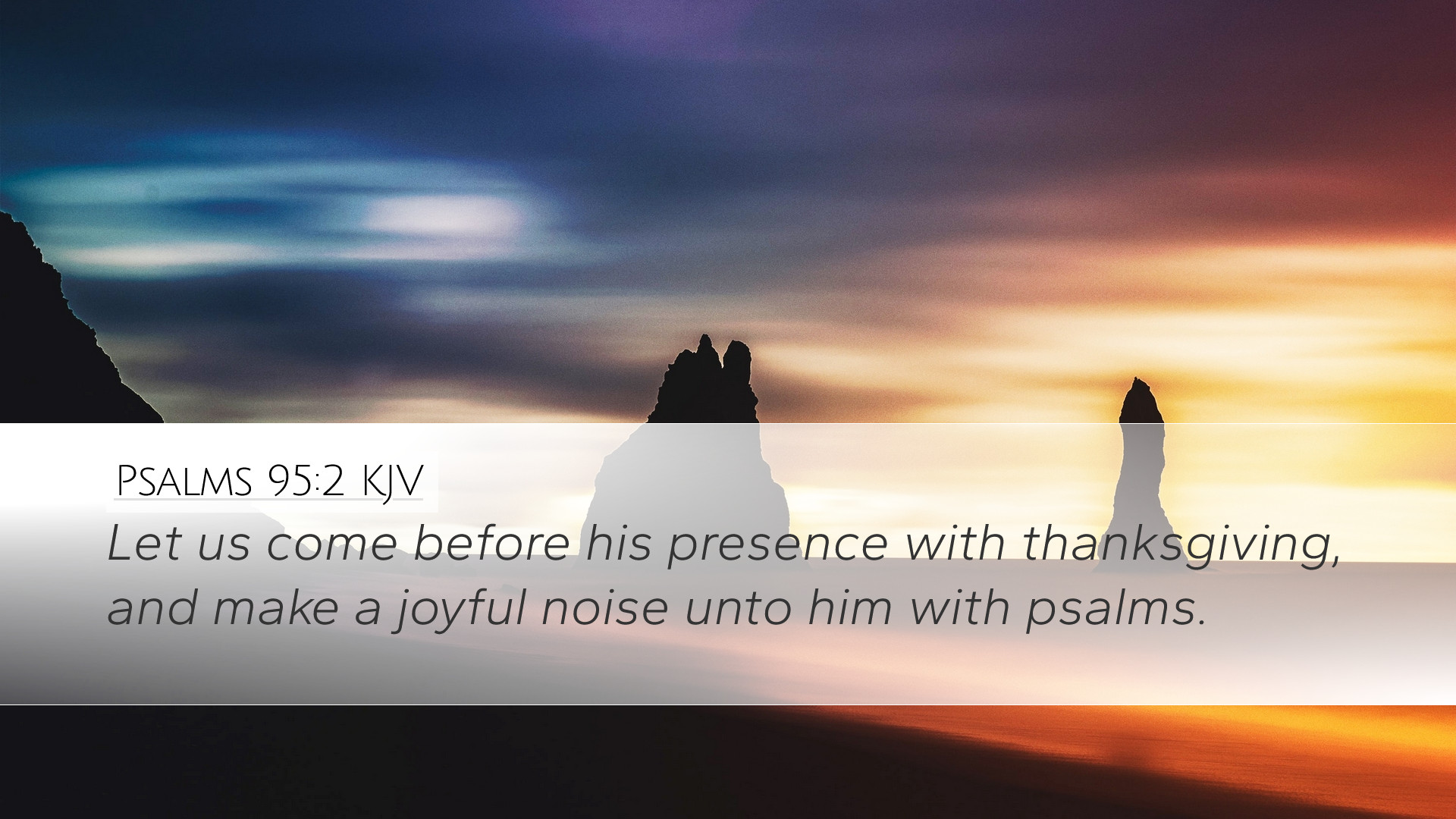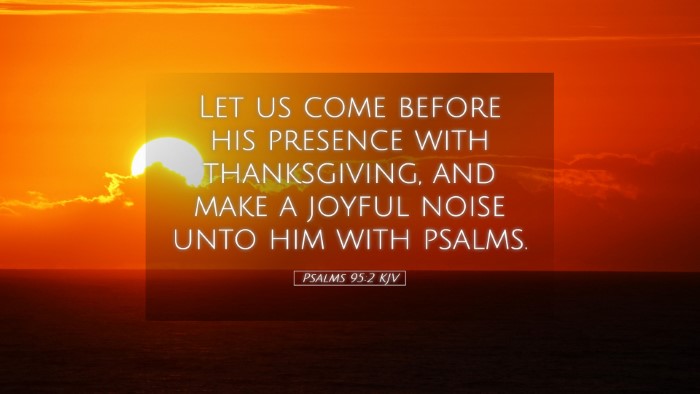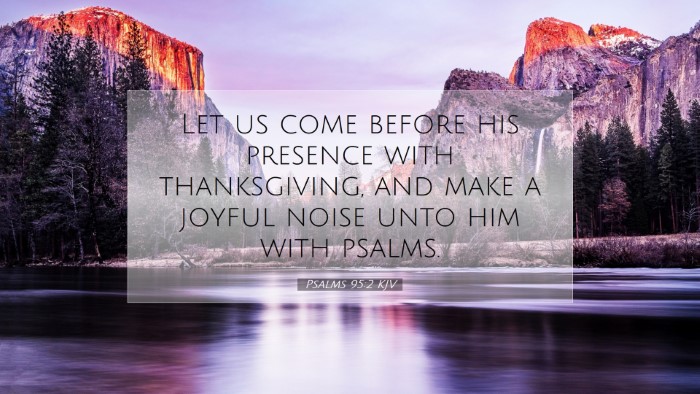Psalms 95:2 - Commentary Summary
Verse Reference: Psalms 95:2 - "Let us come before his presence with thanksgiving, and make a joyful noise unto him with psalms."
Introduction
This verse encourages worshipers to approach God with an attitude of gratitude and joy. It encapsulates the essence of true worship—recognizing God's goodness and responding with heartfelt praise. The insights from various public domain commentaries provide a comprehensive understanding of the worship ethos reflected in this verse.
Summary of Insights
1. Meaning of "Come Before His Presence"
Matthew Henry: Henry emphasizes that coming before God indicates a conscious effort to enter God's presence. It speaks of intentional approach towards a holy God. For the believer, this signifies leaving worldly distractions behind to focus on divine communion.
Albert Barnes: Barnes remarks that this coming is not merely a physical action but also a spiritual one. It invites the worshiper to engage both body and spirit in worship, recognizing that to be in God’s presence is a privilege that should not be taken lightly.
2. The Call to Thanksgiving
Adam Clarke: Clarke highlights that thanksgiving should be a primary aspect of our worship. It is an acknowledgment of God's grace and mercy, reflecting a heart that understands the importance of gratitude in our relationship with God. Worship infused with thanksgiving transforms our perspective and cultivates a heartfelt connection with the Creator.
Matthew Henry: He adds that thanksgiving serves as a reminder of God’s past faithfulness and provision, encouraging believers to reflect on their lives and recognize the innumerable blessings received. Such reflection cultivates a deeper appreciation for God’s character.
3. Making a Joyful Noise
Albert Barnes: Barnes asserts that the phrase 'make a joyful noise' suggests not just sound but a celebratory expression of praise. It invites all worshipers to participate actively in worship, celebrating God's majesty rather than merely observing passively.
Matthew Henry: He elaborates that this joyous noise is an outward expression of the inner joy that believers possess because of their relationship with God. It emphasizes that worship should reflect genuine joy and delight in the Lord, making it a resounding testimony to others of God's goodness.
4. The Role of Psalms in Worship
Adam Clarke: Clarke notes that using psalms in corporate worship is vital. The psalms are a collection of inspired songs and prayers that articulate both the joy and sorrows of God's people. They serve to guide worship practices that are deeply rooted in scriptural truth.
Matthew Henry: He further remarks that the psalms are meant to express our thoughts and feelings toward God in a manner that glorifies Him and encourages unity among believers during worship. It bridges personal devotion with communal expression.
Application for Worship
This verse is not only descriptive of a posture of worship; it also provides practical guidance for how to engage both individually and as a congregation. Here is how these insights can be applied:
- Intentionality in Worship: Believers should approach God with sincerity and a prepared heart, cultivating an attitude of reverence.
- Gratitude Focus: Regularly practice thanksgiving, making it a central theme in personal prayer and corporate worship to remember God's goodness.
- Active Participation: Engage with joy in community worship settings, using the psalms as a framework to express praise and joy.
- Celebratory Expression: Emphasize joyful worship through music and song, harnessing the cooperative joy of the congregation.
Conclusion
Psalms 95:2 underscores the fundamental aspects of worship: intentional approach, a heart of thanksgiving, and joyous expression. Insights from commentators like Matthew Henry, Albert Barnes, and Adam Clarke enrich our understanding and call us to a deeper, more vibrant worship experience. As pastors, students, and scholars delve into this verse, they are encouraged to embody these principles, facilitating authentic worship that reflects a true understanding of who God is and what He has done.


